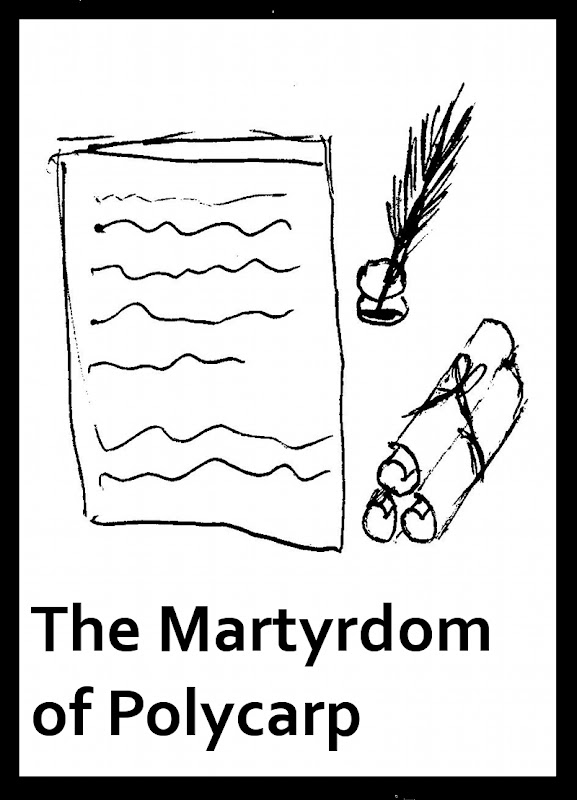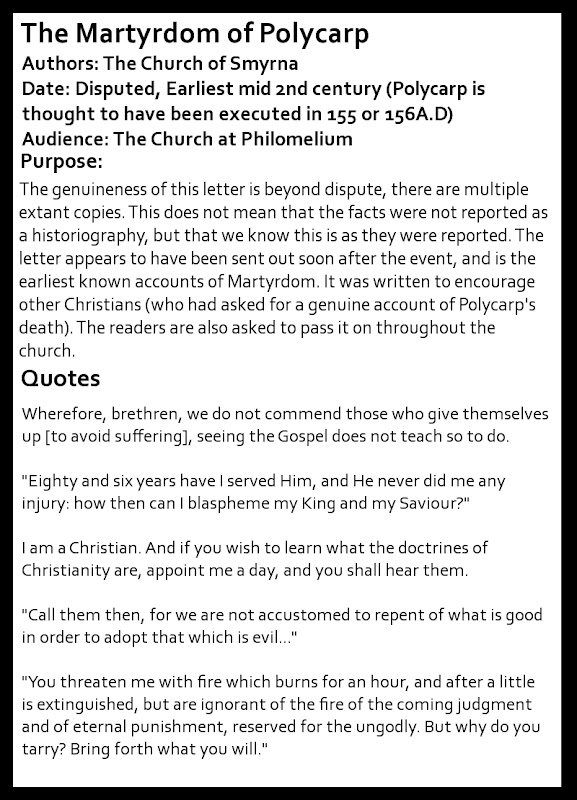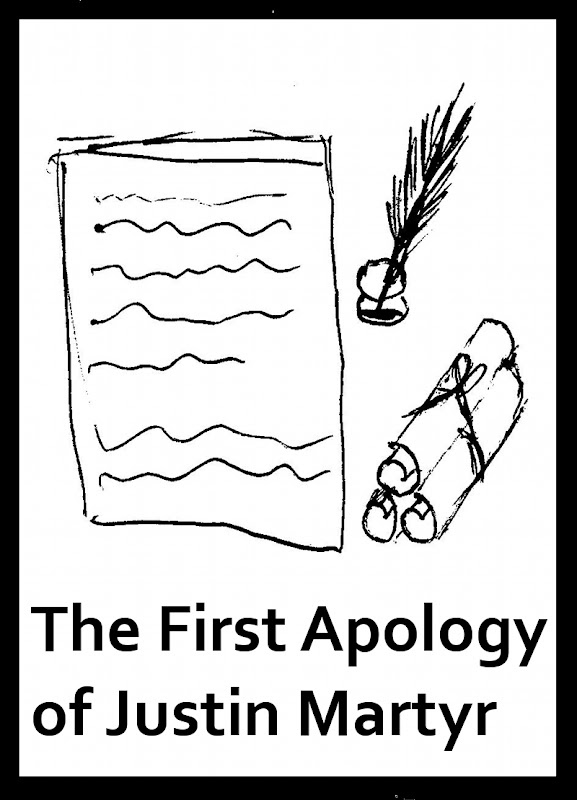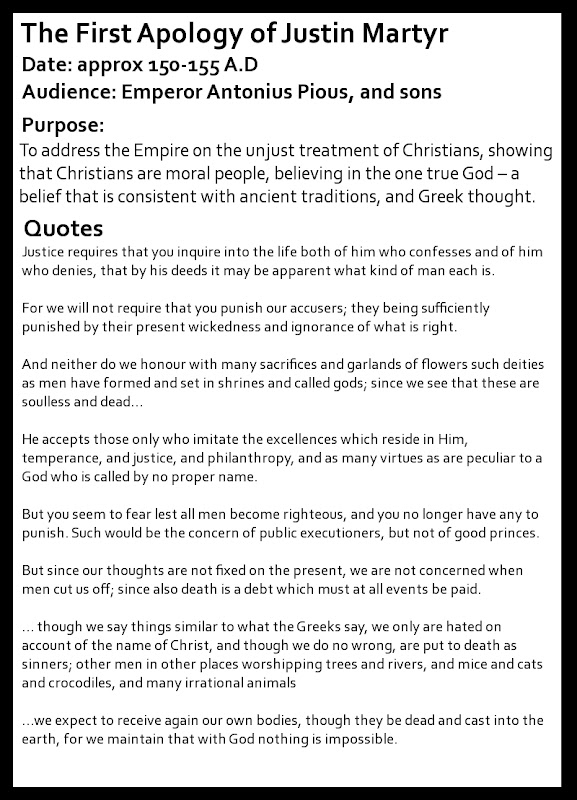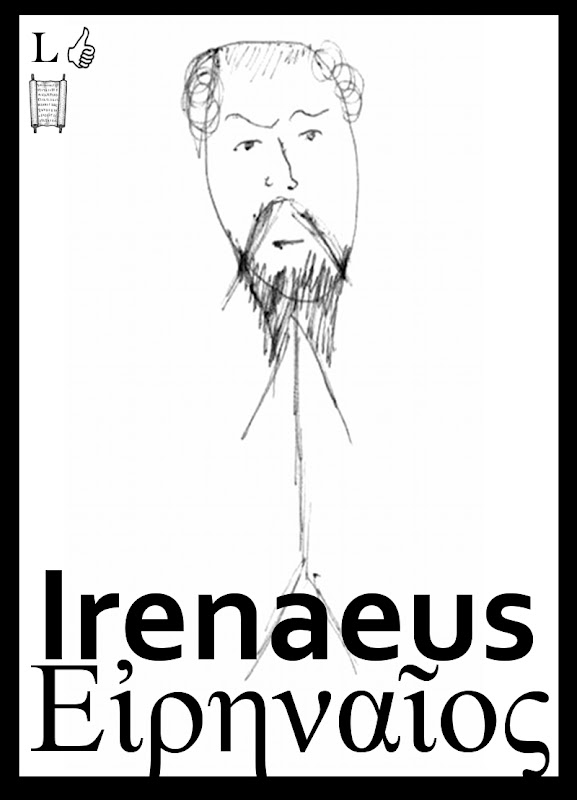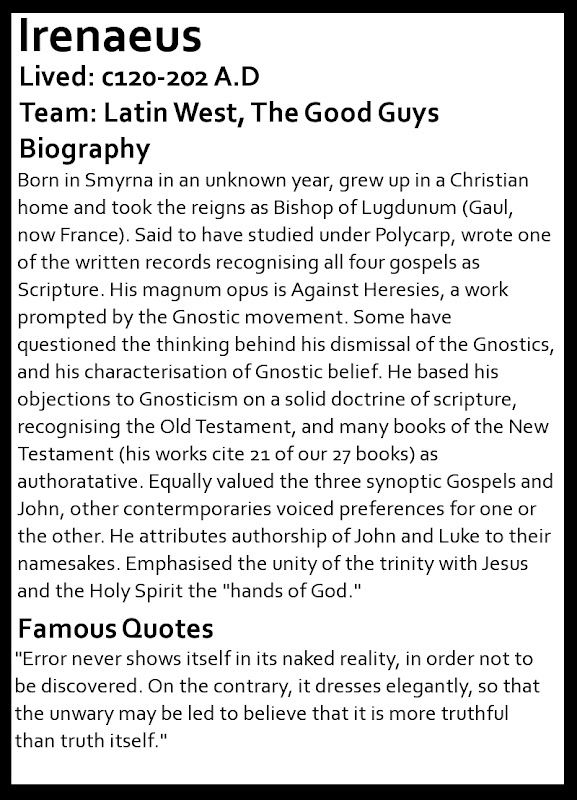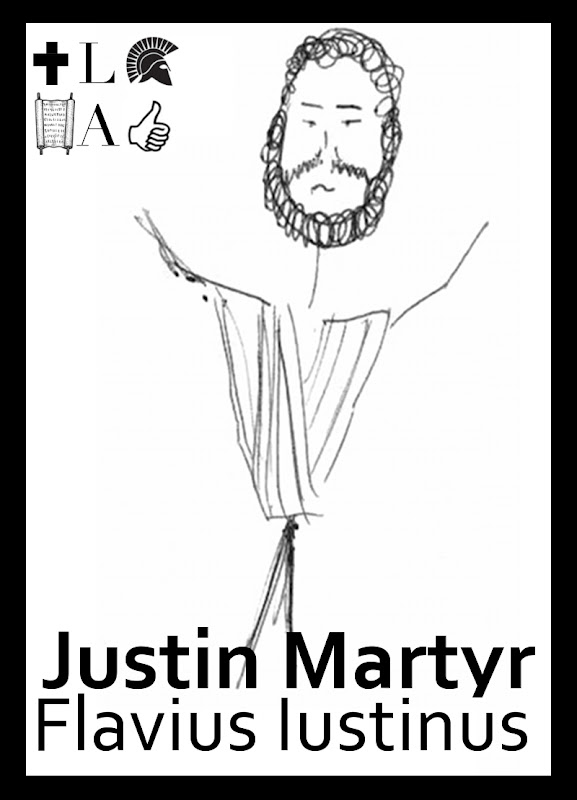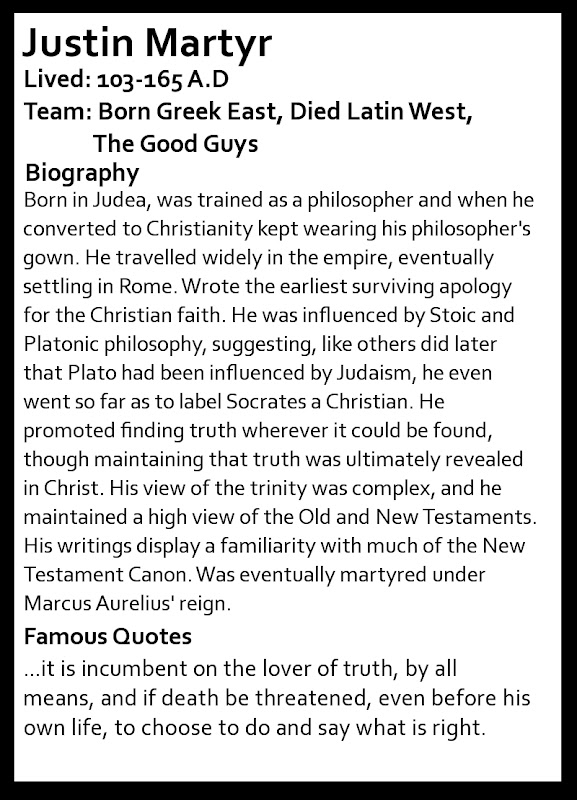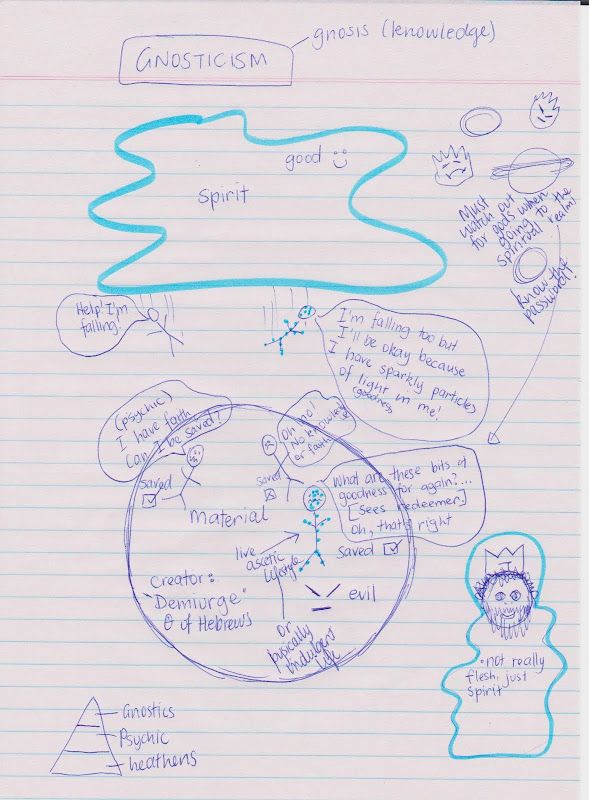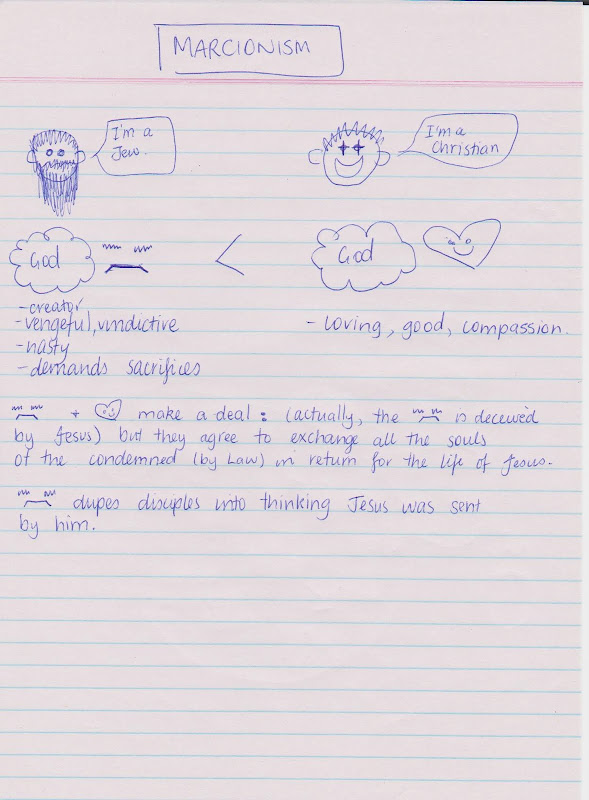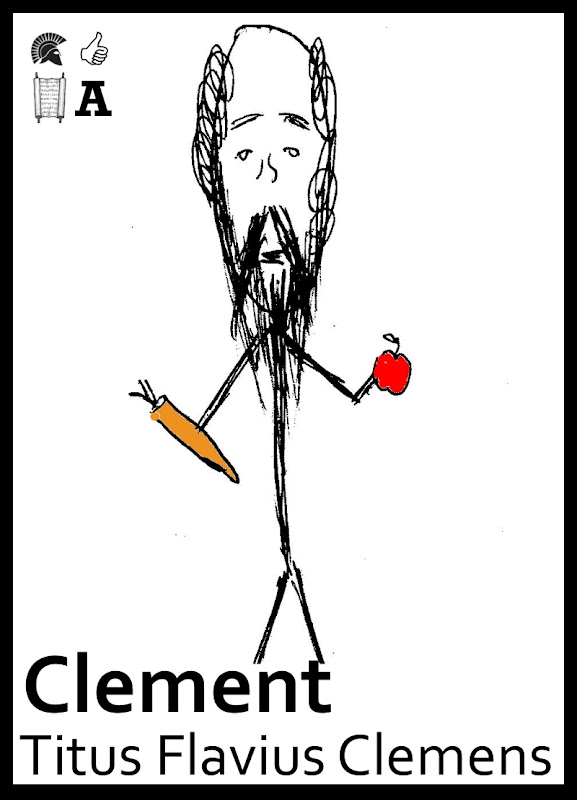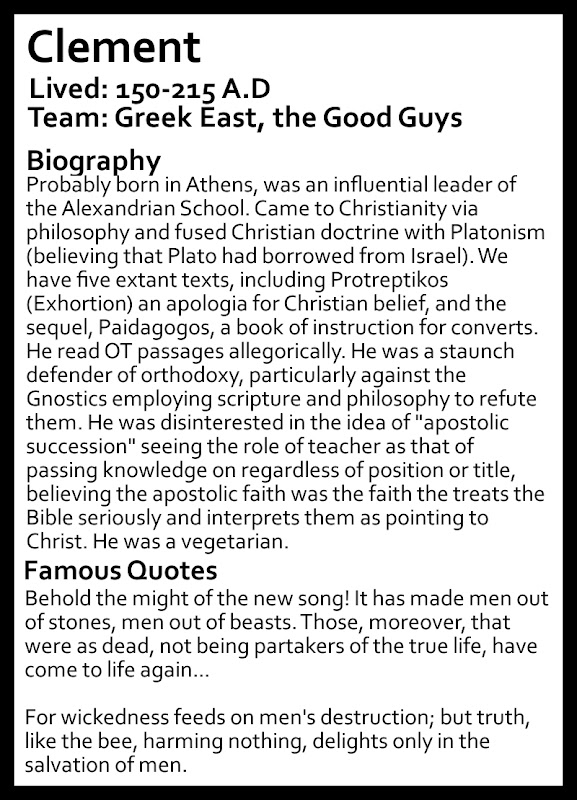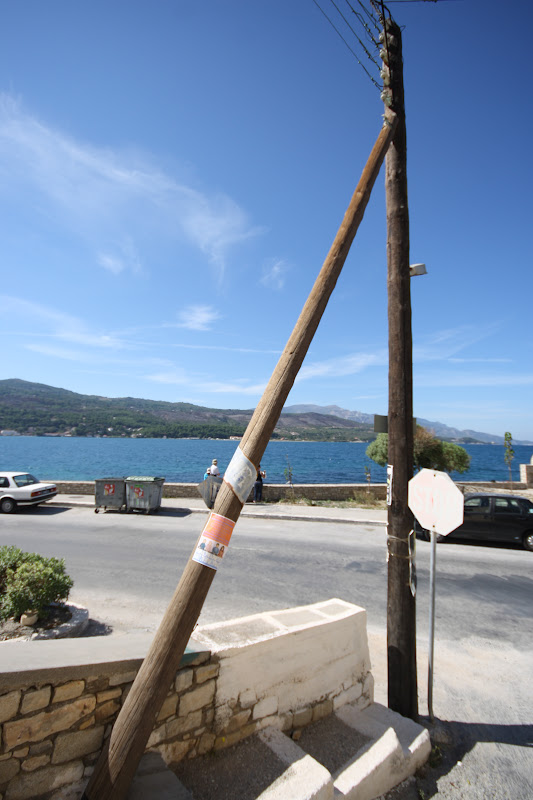Moving right along, like a comedian whose last joke bombed badly, we’re getting towards the final stages of the “Patristic Period” (which covers roughly 100 A.D to 451 A.D, ending at the council of Chalcedon)… these councils all seem to have to decide the same thing over and over again, first against Arianism, and then against Nestorianism and Eutychianism.
Quick guide to fifth century heresies:
Arianism: Different substance, Jesus is creation, not same as creator.
Apollinarianism: Splits Jesus into divine (mind) and human (body)
Nestorianism: Mary bore Christ not God, different substances. Jesus became God (he was two persons in a moral union.
Donatism: Anything touched by somebody touched by a heretic is tainted. Purity at all costs. Your baptism, and salvation, are ruined by a heretic who transmits his heresy.
Pelagianism: No inherited sin, or original sin, or indeed sinful nature. Works can get you to heaven.
Eutychianism: Christ has one unique nature. Not human. Not god.
Quick Guide to the Councils:
325: Nicea – Against Arianism, Athanasius refutes Arianism, vote is hugely in favour, comes up with the Apostle’s Creed – which bears similarities to creedal confessions from 1 Corinthians 15, through the writings of the early church. Takes two months. Decides Jesus is fully human. Fully god. Of like substance.
381: Council of Constantinople – Jesus Christ is truly human. Just like us. Apollinarianism is refuted by the Cappuccino Brotherhood (Cappuccinos actually get their names from the hoods of monks).
393: Council of Hippo – Affirms Athanasius’ definition of the canon, provides criterion for adopting the books.
431: Council of Ephesus – Jesus Christ is one person, contrary to Nestorianism, which held that Christ was two persons, one divine and one human
449: The “Robber Synod” – Declares Christ has only one nature (Eutychianism).
451 Council of Chalcedon: – Response to Robber Synod, decides that “Jesus Christ is “two natures, the Divine of the same substance as the Father (against Arianism), the human of the same substance as us, which are united unconfusedly, unchangeably, indivisibly, inseparably…”
Here’s how the period plays out in timeline form:
325 Council of Nicea
328 Athanasius is bishop Alexandria
329 Basil the Great of Cappadocia is born, he promotes communal monasticism that serves the poor, sick, and needy.
330 Constantinople founded
335 Martin of Tours, a monk who is famous for his compassion for the poor is born.
337 Constantine’s baptism and death
339 Ambrose, a significant figure in the church whose powerful rhetoric converted Augustine, is born, his approach to OT exegesis was closely mirrored by Augustine, anything that wasn’t pure moral instruction he allegorised, looking for a mystical meaning. Follows Origen lots, and borrows allegory from Philo. Fought against Arianism.
340 Ulfias, a German dude, converts to Arian Christianity and ends up converting most of the Germanic tribes.
345 Chrysostom is born, the father of historical and grammatical exegesis (the good stuff) starts a movement away from allegorical interpretations that had been popular since Clement of Alexandria.
347 Jerome is born, Augustine’s interlocutor, and a massive brain who translates the Old Testament out of Hebrew into Latin, producing the Vulgate.
353 Constantius’ pro-Arian policy boots Athanasius out of Alexandria
354 Augustine is born, Augustine. The world’s first blogger. A prolific writer about church, state, doctrine, education, music… you name it, he wrote about it. Had an interesting, and slightly munted, view of the transmission of sin, and a predilection for bizzaro allegory in interpreting the Old Testament. Otherwise a brilliant thinker who should still be read today.
361 Julian the Apostate gains control, converts to Paganism. Rules for two years, gives the Donatists a chance to return to Rome (causing later headaches for Augustine)
367 Athanasius defines New Testament, naming the 66 books of the Bible in a letter.
370 Basil becomes bishop of Caesarea
378 Battle of Adrianople
379 Theodosius becomes emperor, makes Christianity the official state religion.
381 Council of Constantinople: Basil, Greg and Greg take down the Arians. Again. The council deals with pretty much the same issues, concluding that Jesus Christ is truly human, contra Apollinarianism, which split Jesus into a human body and a divine mind. The Great Cappadocians are the inspiration behind the defeat of Arianism at this council. They are St. Basil the Great, St. Gregory of Nazianzus, and St. Gregory of Nyssa
382 A Roman Council affirms Athanasius’ definition of the canon.
385 Ambrose prevails
387 Augustine’s conversion
393 The Council of Hippo also recognises the canon, providing set criteria for recognition: a book had to be Apostolic, fit in with the other scriptures, and have been of fruitful use throughout the church up to that time
395 Augustine becomes bishop of Hippo
397 A council of Carthage recognises the decision at Hippo. We have a Bible.
398 Chrysostom bishop of Constantinople
400 Nestorius, a heretic, dies. He said Mary was the bearer of Christ not God. He could not call a three month child God. So he said that Jesus Christ was two persons, whose only union was a moral one.
406 Jeromes completes the Vulgate
410 Fall of Rome
411 Augustine starts writing against Pelagianism. Pelagius rejected the idea of sin through Adam, original sin, and a sinful nature. Ruled out grace, suggested works was all that was required. Augustine gives birth to Calvinism, ahead of its time. God’s grace is necessary not only to be able to choose to obey God’s commands, but to be able to choose to turn to God initially for salvation.
418 Synod of Carthage: Makes Pelagius a heretic and his teachings an “anathema”
431 Council of Ephesus: Again, forced to rule on Christology. Jesus Christ is one person, contrary to Nestorianism, which held that Christ was two persons, one divine and one human
448 Leo draws on the work of Tertullian and Augustine to define Christology for the church, writes a tome to Flavian (dude in Constantinople)
449 The “Robber Synod”: Declares Christ has only one nature (Eutychianism). Tries to argue that Christ’s nature is unique. Harks back to docetism.
451 Council of Chalcedon: Affirms Leo’s tome, rejects Eutychianism, tosses out Nestorianism (again), decides that “Jesus Christ is “two natures, the Divine of the same substance as the Father (against Arianism), the human of the same substance as us (against Eutychianism), which are united unconfusedly, unchangeably, indivisibly, inseparably (against Nestorianism)”
455 Vandals sack Rome
476 Odoacer deposes last Roman emperor

